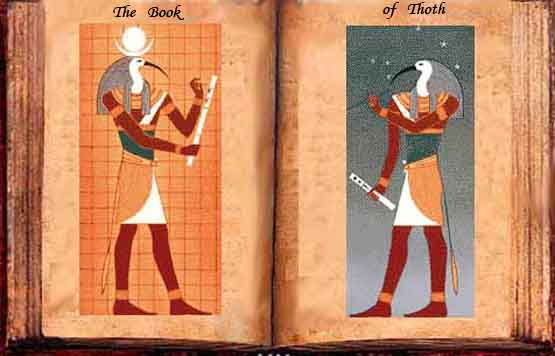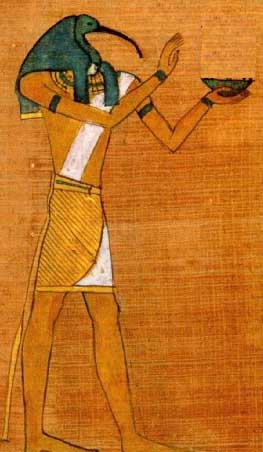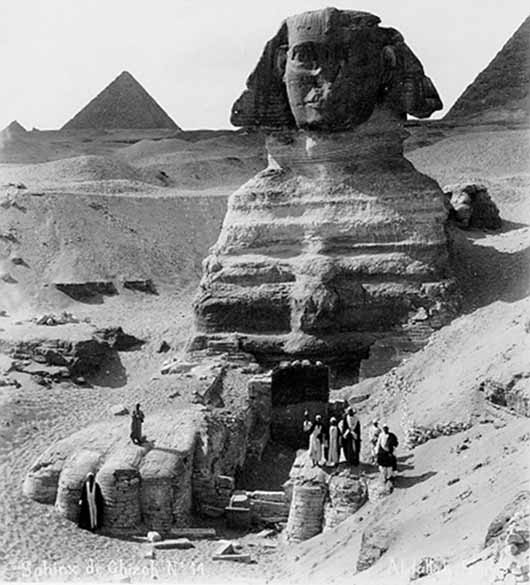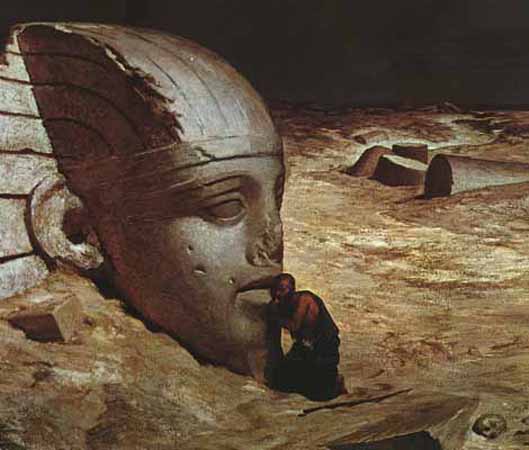

Book of Thoth is a name given to many ancient Egyptian texts supposed to have been written by Thoth, the Egyptian god of writing and knowledge. They include many texts that were claimed to exist by ancient authors, and a magical book that appears in an Egyptian work of fiction.
The Egyptians stored many texts, on a wide range of subjects, in "Houses of Life", the libraries contained within temple complexes. As Thoth was the god of knowledge, many of these texts were claimed to be his work. The Egyptian historian Manetho said that Thoth wrote 36,525 books.
The church father Clement of Alexandria, in the sixth book of his work Stromata, mentions forty-two books used by Egyptian priests that he says contain "the whole philosophy of the Egyptians". All these books, according to Clement, were written by Hermes (a pre-existing Greek god that the Greeks likened to Thoth, claiming they were one and the same god, having similar qualities, i.e. both invented writing). Translation from Egyptian language and concepts to Greek language and concepts was not entirely accurate and some of the Egyptian authenticity was lost. Among the subjects they cover are hymns, rituals, temple construction, astrology, geography, and medicine.
The Egyptologists Richard Lewis Jasnow and Karl-Theodor Zauzich have dubbed a long Egyptian text from the Ptolemaic period "the Book of Thoth". This Demotic text, known from more than forty fragmentary copies, consists of a dialogue between a person called "The-one-who-loves-knowledge" and a figure that Jasnow and Zauzich identify as Thoth. The topics of their conversation include the work of scribes, various aspects of the gods and their sacred animals, and the Duat, the realm of the dead.
The fictional Book of Thoth appears in an ancient Egyptian story from the Ptolemaic period. The book, written by Thoth, is said to contain two spells, one of which allows the reader to understand the speech of animals, and one of which allows the reader to perceive the gods themselves.
According to the story, the book was originally hidden at the bottom of the Nile near Coptos, where it was locked inside a series of boxes guarded by serpents. The Egyptian prince Neferkaptah fought the serpents and retrieved the book, but in punishment for his theft from Thoth, the gods killed his wife Ahwere and son Merib. Neferkaptah committed suicide and was entombed along with the book.
Generations later, the story's protagonist, Setne Khamwas (a character based on the historical prince Khaemwaset), steals the book from Neferkaptah's tomb despite opposition from Neferkaptah's ghost. Setne then meets a beautiful woman who seduces him into killing his children and humiliating himself in front of the pharaoh. He discovers that this episode was an illusion created by Neferkaptah, and in fear of further retribution, Setne returns the book to Neferkaptah's tomb. At Neferkaptah's request, Setne also finds the bodies of Neferkaptah's wife and son and buries them in Neferkaptah's tomb, which is then sealed. The story reflects the Egyptian belief that the gods' knowledge is not meant for humans to possess.
In Egyptian mythology, Thoth is the god of wisdom, time, writing, magic and the moon. The Book of Thoth is a legendary book containing powerful spells and knowledge, said to have been buried with the Prince Neferkaptah (meaning perfect ka of Ptah in Egyptian) in the City of the Dead.

The reader of the rolls would know the language of the animals, be able to cast great spells, and be able to enchant the sky and earth themselves. Anyone who read the book was punished by the gods (who would cause the reader's loved ones to die until the book was returned).
In recent years books such as 'The Orion Mystery' by Robert Bauval have created a popular belief that The Sphinx and other Giza monuments are thousands of years older than is currently claimed by orthodox Egyptologists. Members of this movement often suggest that the Book of Thoth has been positioned beneath the paws of the Sphinx for some 12,000 years.


